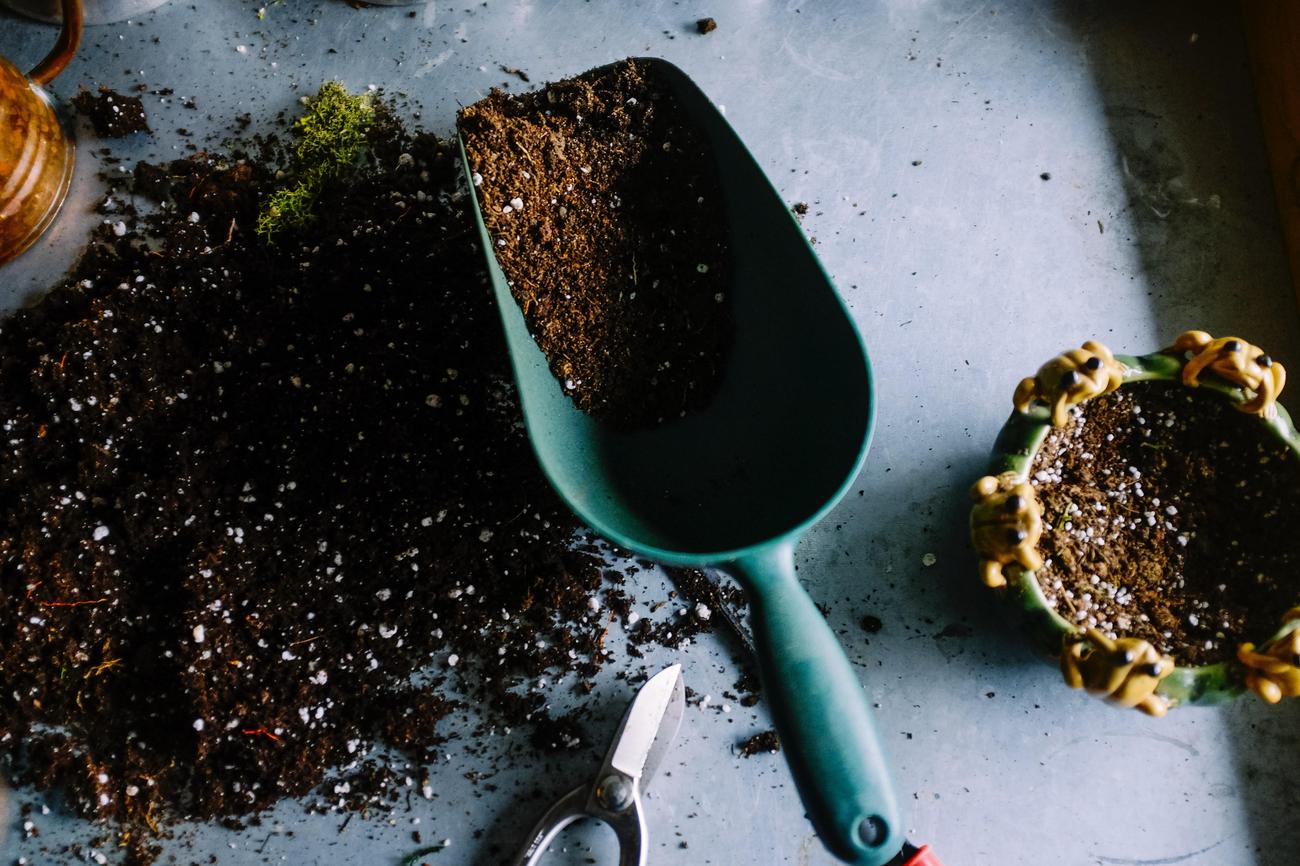Did you know that there’s a simple yet incredibly powerful solution for creating a greener future? It’s called composting. In this article, we will dive deep into the hidden benefits of composting and how it can help us make a significant impact on the planet. By harnessing the power of organic waste, we can not only reduce our carbon footprint but also enrich our soil, conserve water, and promote sustainable living. Join me as we uncover the untapped potential of composting and explore the remarkable benefits it offers.

Benefits of Composting
Composting is not just a simple act of waste disposal; it is a sustainable solution with numerous hidden benefits that can contribute to a greener future. By diverting organic waste from landfills and transforming it into nutrient-rich compost, we can improve soil quality, reduce pollution, save money, and promote a healthier ecosystem. Let’s explore the remarkable advantages of composting and why it should be embraced by individuals and communities alike.
Improving Soil Quality
One of the most crucial benefits of composting is its ability to enhance soil quality, which is becoming increasingly important as soil degradation continues to be a concern in many agricultural areas. Compost enriches the soil with essential nutrients and organic matter, improving its structure, texture, and aeration. This, in turn, promotes better plant growth, health, and diversity, while reducing the incidence of plant diseases, pests, and weeds. As a result, compost-amended soil provides the ideal conditions for a flourishing garden or crop yield.
“Composting is like giving your soil a spa day, rejuvenating it from within and creating a nurturing environment for plants to thrive.”
Environmental Benefits
Composting also offers significant environmental benefits, making it a valuable tool in the fight against climate change and the depletion of our natural resources. By diverting organic waste from landfills, composting reduces greenhouse gas emissions, specifically methane, which is a potent contributor to global warming. Additionally, compost-amended soil requires fewer synthetic fertilizers and pesticides, resulting in fewer chemicals entering our ecosystems and waterways. This sustainable gardening practice helps create a healthier and more resilient environment for future generations.
“Composting is a small act of kindness towards our planet, empowering us to grow plants in harmony with nature and protect our delicate ecosystems.”
Waste Reduction and Cost Savings
Another significant benefit of composting is waste reduction. By composting our organic waste, we divert it from overflowing landfills, thereby reducing the volume of waste and extending the lifespan of these facilities. This not only saves valuable landfill space but also reduces the need for costly waste disposal methods.
Furthermore, composting allows us to reuse organic waste and return valuable nutrients back to the soil, reducing the reliance on synthetic fertilizers. This, in turn, leads to substantial cost savings for individuals, communities, and even farmers who use compost as a natural and nutrient-rich alternative.
“Composting is a win-win situation – we reduce waste, save money, and create a more sustainable and efficient cycle of resource usage.”
Protection and Restoration of the Environment
Composting goes beyond waste management; it also plays a vital role in protecting and restoring the environment. Compost-amended soil acts as a natural filter, preventing pollutants from reaching our groundwater and improving water quality. Additionally, compost helps prevent soil erosion by increasing its water retention and infiltration capabilities, leading to healthier and more resilient landscapes.
Moreover, composting supports the growth of native plants and indigenous species, enhancing biodiversity and creating habitats for beneficial insects and wildlife. By improving soil health, composting contributes to the overall preservation and restoration of our ecosystems.
“Composting is not just about breaking down waste; it’s about building a sustainable habitat where native plants and creatures can flourish.”
Social and Economic Benefits
Composting is not only beneficial for the environment but also for society and the economy as a whole. It promotes local food production by providing a readily available source of nutrient-rich soil amendment that supports sustainable agriculture and community gardens. Additionally, composting initiatives foster social engagement and education, encouraging individuals to connect with their food sources and learn about the importance of waste reduction.
Moreover, composting creates job opportunities in waste management, compost production, and landscaping sectors. It also supports green businesses that offer composting services and sustainable gardening products. By embracing composting, we can contribute to a thriving economy while fostering environmental sustainability.
“Composting is a catalyst for positive change, empowering individuals, and communities to create a greener and more sustainable future.”
In conclusion, the benefits of composting are vast and far-reaching. From improving soil quality, reducing pollution, and saving money to protecting the environment and supporting sustainable development, composting offers a myriad of advantages. By embracing composting practices on an individual and community level, we can contribute to a healthier planet and a more sustainable future for generations to come.
Table:
| Benefits of Composting |
|---|
| Improves soil quality |
| Reduces greenhouse gas emissions |
| Saves money on disposal and fertilizer costs |
| Filters pollutants and improves water quality |
| Prevents soil erosion and protects landscapes |
| Promotes local food production, education, and social engagement |
| Enhances biodiversity and supports native plant species |
| Creates job opportunities and supports green businesses |
By adopting composting practices, we can unlock these benefits and take a significant step towards a greener future. So, why wait? Start composting today and be part of the solution!
Composting is a fascinating way to reduce waste and give back to the environment. Have you ever wondered what can be composted? The answer may surprise you. From food scraps to yard waste, there is a wide range of materials that can be transformed into nutrient-rich soil. To discover the extensive list of compostable items, click here: What Can Be Composted. Prepare to be amazed by the possibilities! Remember, every small effort counts when it comes to taking care of our planet. So, let’s dive into the world of composting together and make a positive impact.
FAQ
Question 1
What are the benefits of composting?
Answer 1
Composting offers numerous benefits such as improving soil quality, reducing greenhouse gas emissions, and promoting local food production. It helps to enrich the soil with nutrients and organic matter, boosting plant growth, health, and diversity. Composting also reduces landfill waste, prevents soil erosion, and filters pollutants.
Question 2
How does composting improve soil health?
Answer 2
Composting improves soil health by enriching it with essential nutrients and organic matter. This process enhances the soil structure, texture, and aeration, leading to improved water retention and infiltration. Composting also increases the soil’s ability to filter pollutants and improves overall water quality.
Question 3
What environmental benefits does composting provide?
Answer 3
Composting offers several environmental benefits. It reduces greenhouse gas emissions by diverting organic waste from landfills. Composting also allows for the growth of plants with fewer chemicals, reducing the use of synthetic fertilizers and pesticides. Furthermore, it helps reduce pollution, reuse organic waste, and return nutrients needed for food production.
Question 4
Does composting save money?
Answer 4
Yes, composting can save money in various ways. It reduces disposal costs, as organic waste can be composted instead of being sent to landfills. Additionally, composting provides a natural and cost-effective alternative to fertilizers and pesticides. It also helps lower maintenance costs for landscaping and gardening projects.
Question 5
Does composting support local communities and businesses?
Answer 5
Composting promotes local food production, education, and social engagement. It creates opportunities for job growth in the green industry sector. Composting also supports green businesses that focus on sustainable practices. By encouraging the use of compost, individuals and communities can actively contribute to building a more sustainable and greener future.
The title for your article could be: The Hidden Benefits of Composting Revealed
Are you looking for a simple yet effective way to reduce waste, improve soil health, and combat climate change? Look no further than composting! In this article, we will dive into the hidden benefits of composting and why it should be an essential part of your daily life. As an experienced environmental researcher and writer, I have dedicated years to studying and practicing composting techniques. Join me as I unveil the remarkable advantages of this eco-friendly practice and provide you with practical tips and tricks to incorporate composting into your routine. Get ready to discover the incredible world of composting and its positive impact on our environment!
Benefits Of Composting
Composting may seem like an ordinary activity, but its benefits are far from ordinary. By turning organic waste into nutrient-rich compost, we can make a significant positive impact on our environment, economy, and community. Let’s dive into the marvelous benefits of composting that often go unnoticed.
Soil Quality and Water Availability
One of the primary advantages of composting lies in its ability to improve soil quality. As soil quality continues to deteriorate in the United States and agricultural areas around the world, composting offers a simple yet effective solution. The organic matter in compost enhances soil structure, texture, and aeration, creating an ideal habitat for roots to thrive.
Additionally, composting increases the soil’s water retention and infiltration capabilities. Think of compost as a sponge that holds onto water, preventing it from evaporating or running off. This not only ensures that plants have access to water when they need it but also revitalizes and filters local water sources, contributing to a healthier ecosystem.
“Composting enriches the soil with nutrients and organic matter, improving soil health and water availability.”
Environmental Benefits
Composting goes beyond its impact on soil and water; it has significant environmental benefits as well. When organic waste ends up in landfills, it decomposes and releases methane, a potent greenhouse gas. By diverting this waste to composting, we can effectively reduce greenhouse gas emissions and combat climate change.
Moreover, compost-generated soil supports healthier and more resilient plants, reducing the need for synthetic fertilizers and pesticides. By growing plants with fewer chemicals, we can minimize the environmental impact associated with conventional agriculture. Composting also plays a role in controlling erosion, thanks to its water retention abilities, which prevent soil from being washed away during heavy rainfall.
“Composting has environmental benefits, reducing greenhouse gases and growing plants with fewer chemicals. It also holds water and helps revitalize and filter local water sources while reducing erosion.”
Economic and Community Impact
Besides its environmental advantages, composting also offers economic benefits to individuals, communities, and businesses alike. By diverting organic waste from landfills, composting reduces disposal costs and landfill space requirements. This can lead to substantial savings for municipalities and businesses while promoting a more sustainable waste management system.
Composting can also lower maintenance costs for landscaping and gardening projects. Since compost improves soil health and reduces plant diseases, pests, and weeds, there is less need for expensive interventions such as fertilizers and pesticides. Additionally, composting fosters local food production, educates communities about sustainable practices, and encourages social engagement.
“Composting saves money on disposal costs, fertilizers, and pesticides. It also promotes local food production, education, and social engagement.”
The Ripple Effect
Every time we engage in composting, we initiate a positive ripple effect. Compost enriches the soil, enabling plants to grow stronger, healthier, and more diverse. As plants thrive, they provide habitat and food sources for numerous organisms, supporting biodiversity and ecological balance. This, in turn, contributes to improved water quality as compost filters pollutants and prevents them from reaching our water sources.
By incorporating composting into our daily lives, we create employment opportunities and support green businesses that focus on recycling and waste management. The circular nature of composting allows us to see waste as a valuable resource, providing multiple benefits while reducing our reliance on unsustainable practices.
“Composting enriches the soil, boosts plant growth and diversity, and filters pollutants, enhancing water quality. It also creates jobs and supports green businesses.”
In conclusion, the benefits of composting are not hidden but rather hidden in plain sight. Composting improves soil quality, reduces waste, mitigates greenhouse gas emissions, saves money, revitalizes water sources, and supports various aspects of our environment, economy, and community. Through simple acts of composting, we can empower ourselves to make a substantial positive impact on the world around us.
But how do we get started with composting? Stay tuned for our next article, where we will provide you with practical tips and tricks for incorporating composting into your daily life.
“By composting, we can empower ourselves to make a substantial positive impact on the world around us.”
Composting is an incredibly beneficial practice that not only reduces waste but also enriches the soil. Did you know that composting can help divert organic waste from landfills? By turning food scraps, yard trimmings, and other organic materials into nutrient-rich soil, we can contribute to a healthier environment.
If you’re interested in learning more fascinating facts about composting, click here: facts about composting. Discover the various benefits, techniques, and even tips for beginners in the world of composting. Get ready to be amazed by the positive impact composting can have on our planet!
Remember, every small action can make a big difference. So, let’s delve into the world of composting and become stewards of the earth!
Benefits Of Composting
Did you know that composting benefits both you and the environment in numerous ways? From reducing waste to improving soil quality, composting has become an increasingly popular sustainable practice. If you’re interested in learning more about the benefits of composting, click here to discover the many advantages that it offers: composting benefits. Additionally, if you want to delve deeper into the subject and explore the fascinating facts surrounding composting, check out this link: composting benefits and facts. Start your journey towards a greener lifestyle today and unlock the incredible benefits of composting.
The Role of Composting in Promoting Sustainable Practices
[youtube v=”5S_SkJkhdRY”]
Transforming Waste into Valuable Resources for a Greener Future
Composting is an essential practice that holds tremendous potential for creating a sustainable future. By diverting organic waste from landfills and transforming it into nutrient-rich soil amendment, composting offers a variety of environmental and economic benefits. As people become more aware of the urgency to take action against climate change, composting is emerging as a crucial solution that individuals can easily adopt to make a positive impact on the environment, economy, and community.
Reducing Greenhouse Gas Emissions through Organic Waste Diversion
One of the significant advantages of composting is its ability to reduce greenhouse gas emissions. When organic waste, such as food scraps and plant debris, is sent to landfills, it decomposes without access to oxygen and produces methane, a potent greenhouse gas. Methane is a driving force behind climate change, contributing to the intensification of droughts and wildfires that we witness today. By diverting organic waste from landfills and channeling it into composting systems, we can significantly reduce methane emissions and mitigate climate change’s harmful effects.
“Less food and organic material in the landfill means less methane emitted into the atmosphere.”
Boosting Soil Quality and Plant Growth
Composting plays a vital role in improving soil quality, structure, and aeration. When organic waste is composted, it breaks down into a nutrient-rich substance that enhances soil fertility. The compost acts as a natural fertilizer, enriching the soil with essential nutrients and micronutrients, promoting healthier and more resilient plants. Additionally, compost enhances the soil’s water retention and infiltration capabilities, allowing plants to better access water during dry periods. This crucial aspect of composting contributes to healthier plant growth and safeguards water sources by reducing runoff.
“Composting improves soil quality and creates an ideal habitat for plant roots to thrive.”
Controlling Erosion and Preserving Water Sources
Another notable benefit of composting is its role in erosion control and water preservation. Composting helps prevent soil erosion by improving soil structure and stability. When compost is added to the soil, it increases the soil’s ability to hold onto water, reducing runoff and soil erosion during heavy rainfall. This is particularly important in areas prone to erosion and flash floods. By supporting the retention of water in the soil, composting helps preserve water sources and promotes sustainable water management.
“Composting helps control erosion and prevents soil from being washed away during heavy rainfall.”
Fostering Economic and Environmental Sustainability
Composting not only benefits the environment but also offers economic advantages. By diverting organic waste from landfills, individuals and communities can save money on disposal costs. Additionally, the use of compost in landscaping and gardening reduces the need for synthetic fertilizers and pesticides, leading to cost savings in these areas as well. Furthermore, composting can support local food production by providing nutrient-rich soil for growing crops, contributing to food security and reducing reliance on external inputs. It also presents educational opportunities, allowing communities to learn about sustainable practices and engage in green initiatives.
“Composting reduces the need for synthetic fertilizers and pesticides, promoting healthier and more resilient plants.”
Changing Mindsets for a Sustainable Future
Composting is more than just a waste management practice; it is a mindset and a commitment to creating a sustainable future. As composting gains popularity, individuals and communities are encouraged to take part, fostering a sense of responsibility and promoting environmental stewardship. By incorporating composting into daily routines, people of all ages can contribute to the well-being of our planet. Similar to recycling, composting can become a habit that is passed on from generation to generation, ensuring a greener future for all.
“Through composting, individuals can make a substantial positive impact on the environment, economy, and community.”
As we strive to address the environmental challenges we face, composting emerges as a practical and effective solution that holds immense potential. By reducing greenhouse gas emissions, enhancing soil quality, controlling erosion, and fostering economic and environmental sustainability, composting becomes a powerful tool in the fight against climate change. Through widespread adoption, this simple practice can bring about significant positive change, benefiting both present and future generations. Let us embrace composting as a way to nourish our soil, nurture our plants, and safeguard our planet.
FAQ
Question 1: How does composting improve soil quality?
Answer 1: Composting improves soil quality by enriching it with nutrients and organic matter. It also enhances the soil structure, texture, and aeration, which in turn promotes plant growth, health, and diversity.
Question 2: What are the environmental benefits of composting?
Answer 2: Composting has several environmental benefits. It reduces greenhouse gas emissions by diverting food and yard waste from landfills. Additionally, it filters pollutants and improves water quality. Furthermore, composting helps in growing plants with fewer chemicals, thereby minimizing the impact on the environment.
Question 3: Can composting help conserve water?
Answer 3: Yes, composting can be beneficial in water conservation. It has water retention abilities, which can hold water and help revitalize and filter local water sources. Thus, composting plays a role in conserving water by improving its retention and infiltration into the soil.
Question 4: How does composting contribute to reducing erosion?
Answer 4: Composting reduces erosion by controlling it through its water retention abilities. The compost holds water, preventing it from washing away the topsoil. By improving soil structure and reducing runoff, composting helps in preserving the land and preventing erosion.
Question 5: What are the economic benefits of composting?
Answer 5: Composting offers several economic benefits. It saves money on disposal costs, fertilizers, and pesticides. Moreover, by lowering maintenance costs for landscaping and gardening projects, composting can be financially advantageous. Additionally, it promotes local food production, education, and social engagement, contributing to the local economy and creating job opportunities.
















